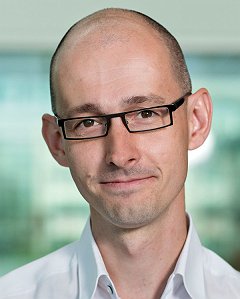Keynote 2: Why teaching modeling in 2023 is more important than ever?
Summary: Modeling and language engineering have never been as successful before as they are today. In every software domain, you’ll find numerous external and internal modeling languages. Everybody models all the time. At the same time, modeling has never been as inconspicuous as it is today. Modeling is not a buzzword anymore. Being a modeling expert means not much when everybody is a modeling expert.
In this talk, I’ll focus on two groups of modeling languages: reactive programming languages, such as behavior trees and state machines (used in robotics), and probabilistic programming languages (used in data science). While examining these examples closely, I will ask: How are these modeling languages developed, and by whom? Why and how should people learn language engineering in 2023?
Warning: The talk includes some product placement of the dsl.desing modeling textbook.
Chair: Silvia Abrahão
Tue 3 OctDisplayed time zone: Amsterdam, Berlin, Bern, Rome, Stockholm, Vienna change
15:30 - 17:00 | Session 4: New Technologies, Keynote, Discussion and ClosingEducators Symposium at 201 Chair(s): Silvia Abrahão Universitat Politècnica de València | ||
15:30 30mTalk | Generative AI in Model-Driven Software Engineering Education: Friend or Foe? Educators Symposium Sergio Morales Universitat Oberta de Catalunya, Elena Planas, , Robert Clarisó Universitat Oberta de Catalunya, Martin Gogolla University of Bremen | ||
16:00 45mKeynote | Keynote 2: Why teaching modeling in 2023 is more important than ever? Educators Symposium Andrzej Wąsowski IT University of Copenhagen, Denmark | ||
16:45 15mDay closing | Discussion and Closing Educators Symposium | ||
Biography: Andrzej Wąsowski is a Professor of Software Engineering at the IT University of Copenhagen, Denmark. He has also worked at Aalborg University (Denmark) and as a visiting professor at RWTH Aachen (Germany), at INRIA Rennes (France), and at the University of (Waterloo), Ontario. His interests lie in software quality, reliability, and safety in high-stakes, high-value software projects. This encompasses semantic foundations and tool support for model-driven development, program analysis tools, testing methodologies, and processes for enhancing and maintaining software quality. Many of his projects involve collaborations with commercial or open-source partners, primarily in the domains of robotics and safety-critical embedded systems. Currently, he leads the Marie-Curie training network on Reliable AI for Marine Robotics (REMARO). Together with Thorsten Berger, he authored the Springer textbook on “Domain Specific Languages, Effective Modeling, Automation, and Reuse.” He holds a PhD degree from the IT University of Copenhagen, Denmark (2005), and an MSc Eng degree from the Warsaw University of Technology, Poland (2000).
